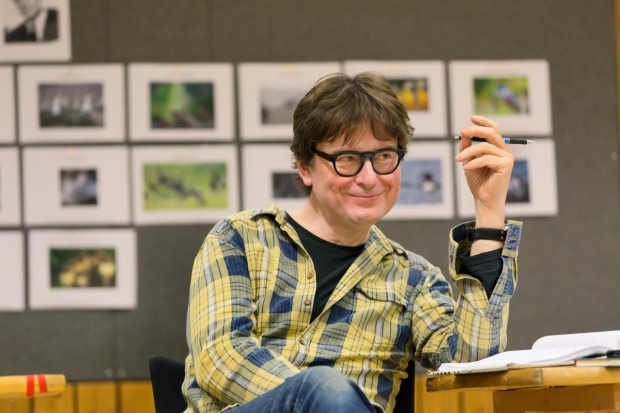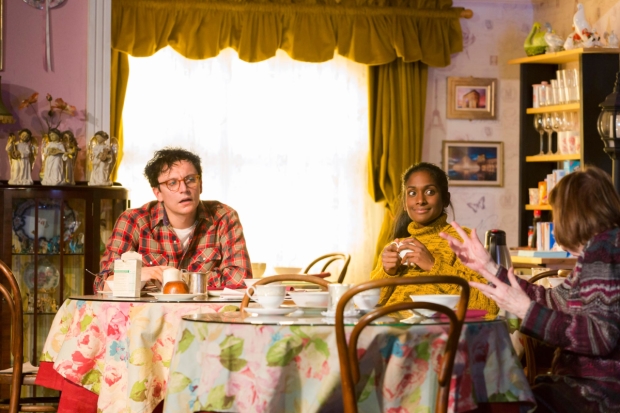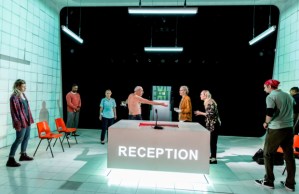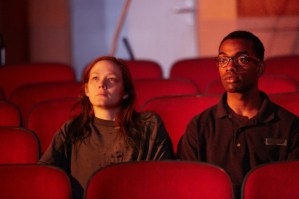James Macdonald: 'Annie Baker is a poet of lost souls'
The director of the UK premiere of Annie Baker’s ”John” explains what draws him to specific playwrights, the furore around the premiere of Sarah Kane’s ”Blasted” and how he came to theatre

© Stephen Cummiskey
The unassuming James Macdonald may not be the world’s most well-known director, but over his substantial career he has quietly become one of this country’s foremost interpreters of the great Caryl Churchill. The reason for that was absolutely in evidence in 2016 when he directed Churchill’s newest work, Escaped Alone, at the Royal Court. Over the years he’s also directed major premieres of plays including Sarah Kane’s Blasted, Cleansed and 4:48 Psychosis. In 2015 he won an Evening Standard Award for directing The Father and in 2013 he directed the UK premiere of American Pulitzer Prize winner Annie Baker’s play Circle Mirror Transformation. Now he returns to work with Baker on John, which opens at the National Theatre this week.
Could you explain a bit about John?
The play is set in a bed and breakfast in Gettysburg, the site of the bloodiest and most awful battle in the American Civil War and the turning point of that war. It’s also obviously the location of Abraham Lincoln’s Gettysburg Address. So for Americans it's an incredibly important cultural landmark and pivot in their history. The play takes place the weekend after thanksgiving and the only guests at the bed and breakfast are a young couple on their way back to New York. It’s about an encounter between them and the old lady who runs the bed and breakfast and her best friend Genevieve.
Without spoilers, how would you describe the 'encounter'?
It’s a collision between two people of one generation and two people of a younger generation. The couple’s relationship is on the skids and the obvious question the set up asks is whether the younger ones have anything to learn from their elders in this strange little town full of history. The play is about the collapse of a relationship but it’s about a million other things besides. The house may or may not be haunted.
Really?
The writer Annie Baker is a supreme rationalist but the play is about the house as a logical space and what may be beyond reason, what may be supernatural or not and what exists beyond rationality. It's all set in the public spaces of the bed and breakfast. I think it’s something Annie loves to do: to focus on a space and a set of people. She has so far tended to write about underdogs, people who aren’t well represented on a stage and spaces that we don’t think of as obvious theatre spaces as well.
This is the second of Annie’s works you’ve directed. What draws you to her writing?
I just think she’s brilliant. She’s a poet of lost souls. Everyone in this play and in Circle Mirror Transformation, which is the last play I directed by her, are all in some sense lost. They are looking for something they don’t have. I think it’s important politically as well. This play is about people who aren’t represented on a stage and at its centre there’s a conversation between three women about how they all, in their time, have felt cowed by men. Although it isn’t overtly political, it seems to me you couldn't have a more important conversation on a stage at the moment.
What is it like working with Annie Baker in the rehearsal room?
She’s extremely witty, she knows her characters inside out and she just is incredibly generous towards people so it’s been a pleasure and a privilege to have her around.
You have directed a huge number of Caryl Churchill works, what makes you want to direct her plays?
I am always looking for plays that seem to be pushing the boat out in terms of both content and form and Caryl is the supreme master of that. Any play she writes is new in both those domains and as a director that’s absolutely a thrilling challenge.

© Stephen Cummiskey
Has working with her changed over those decades?
We have known each other a very long time and so you develop a common language. As her writing has gone on it gets more and more economical so leaves more space for a director to interpret. If you look at the early plays they contain a lot of dialogue and stage directions and now that’s all gone. And that’s typical of great mature artists. It’s the germ of an idea that nobody has expressed before that interests them.
You directed the world premiere of Sarah Kane’s Blasted which prompted a storm of controversy. What was that like?
There can’t have been anything important going on in the world at that time because all the newspapers ran news stories about it. There were tabloid journalists outside stage door, so we had to man the barricades a bit. Stephen Daldry debated it on Newsnight, I wrote a piece.
Were you expecting the extent of the reaction?
No, not at all. We knew it was a difficult play that wouldn’t be to everyone’s tastes and that people would find it upsetting whether they liked it or not. But in retrospect, the press debate was to some extent manufactured by a couple of critics who felt they could get in the news pages for a change. And I don’t think you could run the news story now: it really only existed because it was a woman writing the play. The narrative was 'nasty girl wastes taxpayer’s money'.
Have we managed to come far from those narratives?
I’d like to think so. It premiered in 1995 and we weren’t long after Thatcher so the arts had been quite heavily cut. And actually quite serious journalists were making the argument that it was the wrong time to write the play because it was rocking the boat in terms of public subsidy. That was possibly the most shocking aspect of the whole thing.
How did you come to theatre?
My parents took me to the theatre and I started directing when I was at school. I just spotted it as being a cool thing that you could do which meant you were being artistic with your mates but you didn’t ever have to get up and embarrass yourself. The first thing I directed at aged 16 was Joe Orton’s Loot. It felt suitably bolshy, for a 16 year-old.
You have worked a lot at the Royal Court – what’s your view of what has been happening there and in the industry in general recently?
I was away directing in New York for the town hall meeting [at the Royal Court] but I didn’t miss the debate. I was following it in the news and probably like all people having that debate personally with friends and co-workers. All power to Vicky [Featherstone] for having organised it and all power to the London theatres for having collaborated on it. That didn’t happen in New York. The problem with theatres in New York is that they are all run by people who have been there for a very long time and who have their own agendas and who don’t particularly speak to each other. The great thing about London theatre is that it is run by a bunch of mostly young artistic directors who do speak to each other and can collaborate.
John runs at the National Theatre until 3 March. James Macdonald talks to designer Chloe Lamford in an NT platform on 1 February at 5.30pm.
















